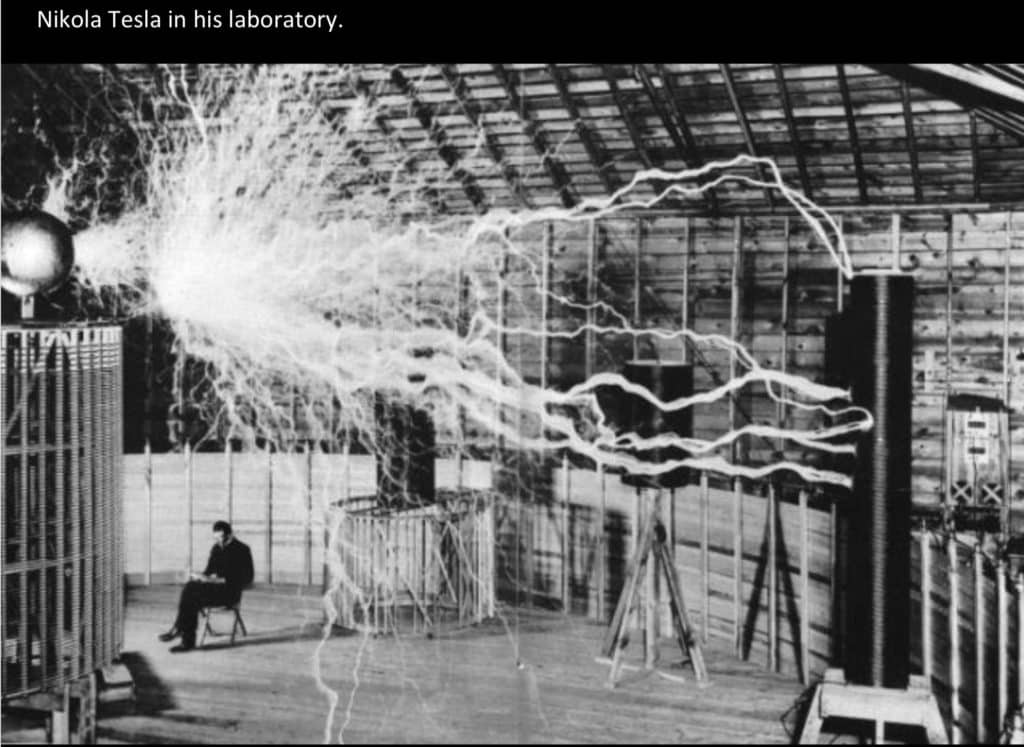
Genius is generally measured by achievement. Someone who is classified as a “genius” is usually a person who has discovered or created something entirely new that is a great departure from what was already known or developed. For example, Albert Einstein was considered a genius because he changed the paradigm in physics by challenging the assumption that time is absolute. He also changed the perception of gravity as a “bending of space” rather than an invisible force acting at a distance. Both discoveries changed the existing assumptions in physics and irrevocably changed its fundamental axioms.
Many regard Nikola Tesla as a genius, because he was the foremost promoter of alternating current as the basis for electric power, while Edison and others were focussed on direct current. Tesla’s breakthrough came with the development of his Tesla coil, a high-voltage transformer capable of producing extremely high-frequency alternating currents. This invention paved the way for wireless power transfer and the exploration of radio waves. Tesla’s work on AC power systems and his inventions, such as the induction motor, laid the foundation for the modern electric power industry.
John von Neumann, one of the giants in mathematics and computers coauthored with Oskar Morgenstern their groundbreaking Theory of Games and Economic Behavior in which they sought to mathematize strategic decision–making. What emerged from this publication was an entirely new branch of economics that is known today as game theory. Von Neumann is also regarded as one of the fathers of the programmable computer. It was his brilliant insight that the rules of Boolean algebra could be embedded in the computer’s memory system enabling, people to load programs into the computer that would process the data and output information. Before that insight, the computer operated somewhat like a giant calculator.
Geniuses in the humanities and the arts are harder to define because the judgment of works in these fields is subjective and seldom unanimous. Many would consider Mozart to have a genius for music and Shakespeare to have genius as a playwright, but these judgments are often challenged as values change.
The quality of life that we enjoy as a species is led by two groups: the geniuses and the highly talented. The latter group is composed of those who are “well-educated in their field of expertise,” and possess a high level of creativity and insight. While we are indebted to people in both groups, it is the geniuses who lead the way and light the path for the highly talented. As philosopher, Arthur Schopenhauer famously observed, “Talent hits a target that no one else can hit; genius hits a target no one else can see.”
